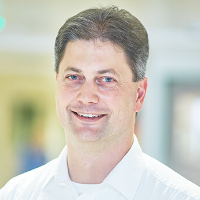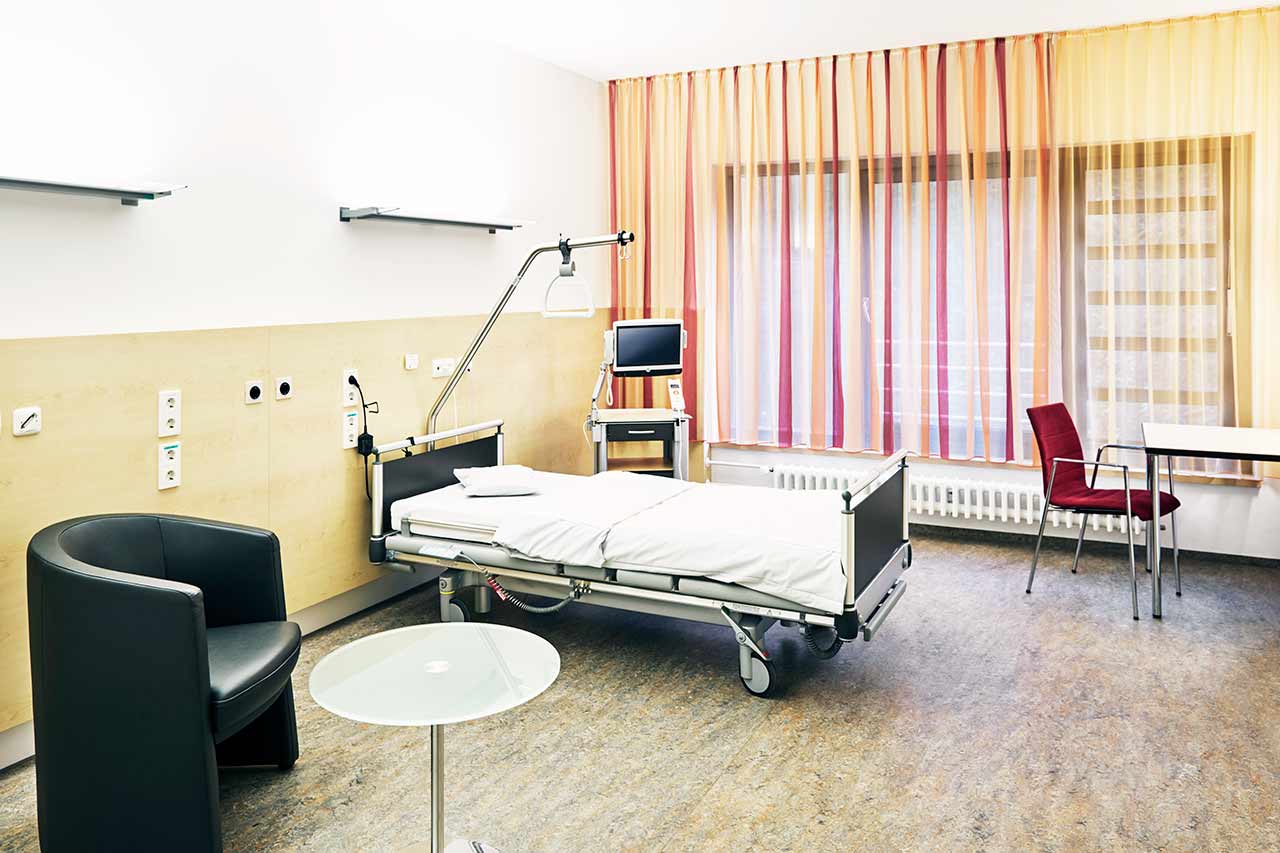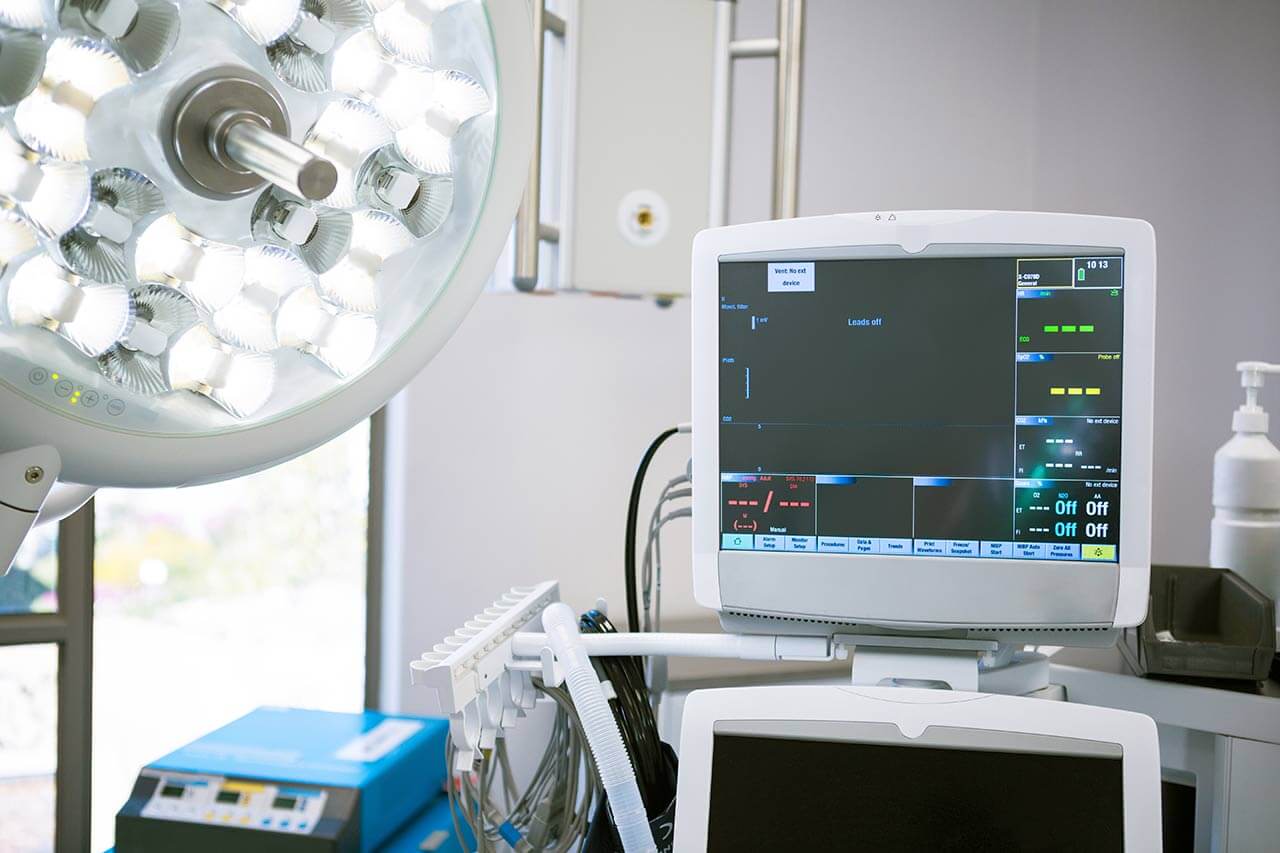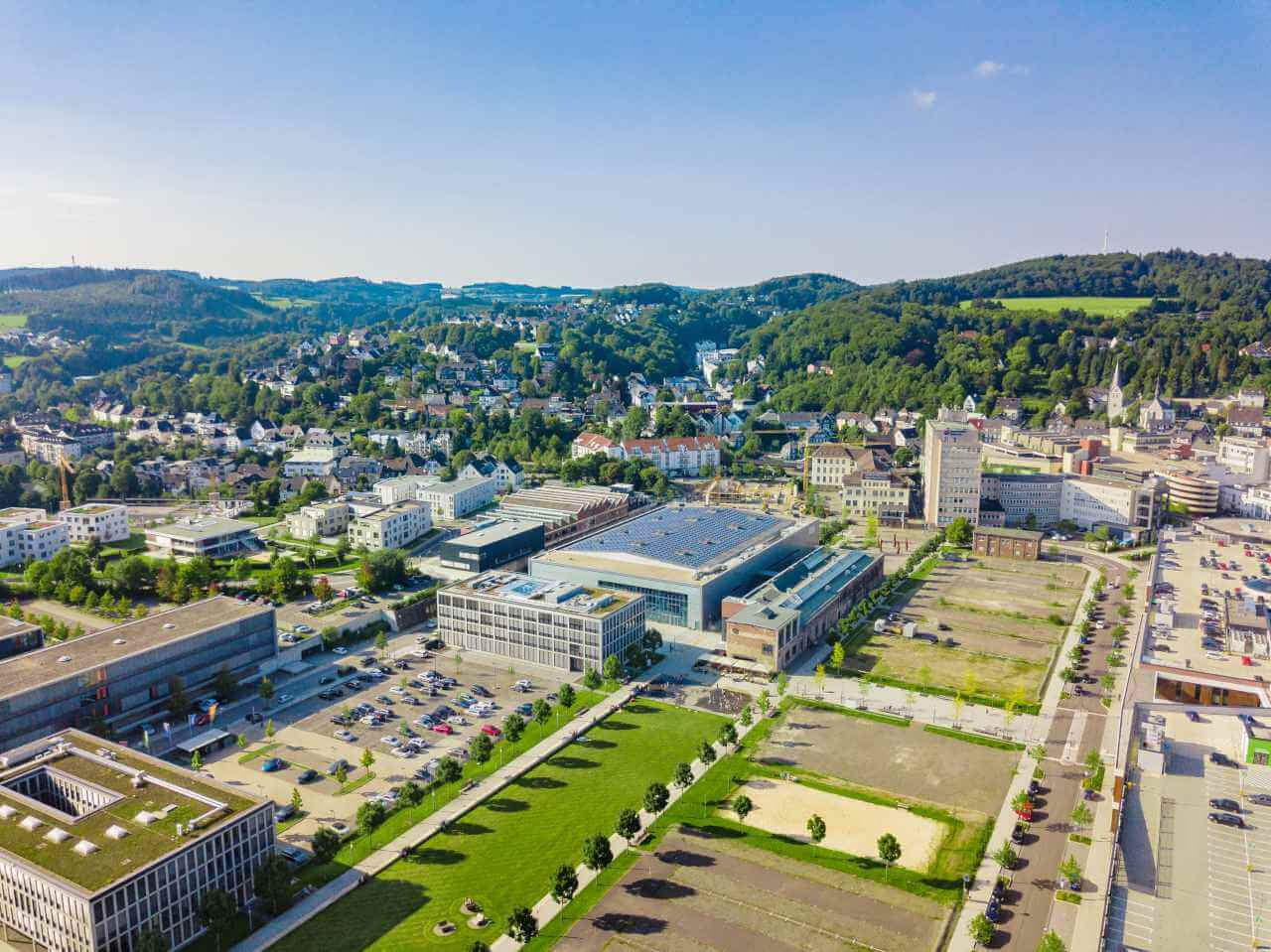
The program includes:
- Initial presentation in the clinic
- clinical history taking
- physical examination
- review of medical records
- laboratory tests:
- complete blood count
- general urine analysis
- biochemical analysis of blood
- indicators of inflammation
- indicators of blood coagulation
- X-ray / MRI examination of the knee
- preoperative care
- total knee replacement, cost of the implant is included
- symptomatic treatment
- control examinations
- the cost of essential medicines and materials
- orthopedic appliances
- physiotherapy
- nursing services
- full hospital accommodation
- explanation of future recommendations
The program includes orthopedic rehabilitation:
- Primary presentation in the clinic
- medical history taking, including family history
- complex of neurological and orthopedic examinations
- X-ray examination
- individual rehabilitation program, which includes:
- Wii Fit training in the use of the balance
- neuropsychological therapy
- functional therapy of the upper extremities (ArmeoSpring)
- kinesiotherapy (physiotherapy)
- biocontrol with feedback
- healing deep muscle massage
- acupuncture of spasticity and pain syndromes
- occupational therapy
- psycho-educational classes
- individual physiotherapy
- microcurrent treatment
- fangotherapy / cryotherapy
- antispasmodic drug therapy
- mobilization of limb joints
- hydrotherapy / massage therapy / reflexology
- training on special trainers
- etc.
- nurses care
- stay in the hospital with full board
- symptomatic and drug therapy
How program is carried out
Preliminary preparation for surgery: quitting smoking and drinking alcohol 2 weeks before surgery; cancelling non-steroidal anti-inflammatory drugs (diclofenac, ibuprofen); cancelling anticoagulants (warfarin); normalization of body mass, if possible.
Preoperative examination, including consultation with an anesthesiologist and necessary related specialists. X-ray examination and MRI of the knee joints are performed. The examination takes 1-2 days.
Surgical knee replacement. The operation is performed under general anesthesia and lasts for about 2 hours.
Postoperative care. During the first day after the intervention the patient stays in the intensive care unit, under round-the-clock medical supervision. After that, with a smooth course of the postoperative period, the patient is transferred to a regular ward and the drains are removed. The range of motion expands gradually, from light toes movements to walking. Walking with the use of walking aids is allowed in 3-5 days after the operation. Normal walking without the use of walking aids (crutches, cane) will become possible in 6-12 weeks.
Finally, the attending physician will evaluate the results of control examinations, schedule the date of discharge from the hospital and give you detailed recommendations for further follow-up and treatment.
Rehabilitation. The rehabilitation program begins after the transfer of the patient from the intensive care unit to a regular ward. It includes physical activity (from exercises in bed in the early days to exercises in the gym), physiotherapy, massage (including lymphatic drainage). After discharge from the hospital, the patient is transferred to a specialized rehabilitation clinic for 2 weeks, where he undergoes an advanced rehabilitation course.
Required documents
- Medical records
- X-ray examination, MRI/CT scan (if available)
Service
You may also book:
 BookingHealth Price from:
BookingHealth Price from:
About the department
The Department of Adult and Pediatric Orthopedics, Trauma Surgery, Hand Surgery, Foot Surgery and Spinal Surgery at the Hospital Gummersbach Oberberg provides diagnostics and conservative and surgical treatment for the full range of diseases and injuries of the musculoskeletal system. The department specializes in joint replacement surgery, arthroscopic surgery, microsurgical interventions on the hand, spinal surgery, and conservative and surgical treatment of injuries to the bones, joints, and muscles. Patients of all age groups can receive medical care in the department. The medical facility performs more than 3,000 operations of varying complexity every year. As part of outpatient visits, the department's doctors serve over 15,000 patients per year. The specialists almost always use minimally traumatic surgical techniques to promote rapid recovery in the postoperative period. A large proportion of operations are performed on an outpatient basis without a mandatory hospital stay. The department has 125 beds. The basis for successful clinical practice is an advanced technical base, the use of effective and reliable treatment methods, and the highest professionalism of doctors and nursing staff. The excellent results of the work of the department's medical team are confirmed by prestigious quality certificates, in particular DIOcert, ClarCert, EndoCert, and others. The department is headed by Prof. Dr. med. Christian Probst.
One of the key areas of work of the department's orthopedic team is knee, hip, shoulder, and ankle arthroplasty. The medical facility has been awarded the EndoCert quality certificate. This certificate is the most prestigious award for arthroplasty centers in Germany and it is awarded to the best clinics with high treatment success rates. In most cases, joint replacement surgery is performed using sparing minimally invasive techniques. The department was one of the first in Germany to practice arthroplasty using a navigation system in combination with the BrainLAB device. Innovative computer-assisted navigation allows surgeons to implant prostheses with millimeter precision, which largely determines treatment success. Before the operation, the doctor selects the optimal prosthesis for the patient, taking into account his or her anatomical features. The specialists work only with high-quality prostheses from leading manufacturers, the service life of which reaches 20 years or more.
The department enjoys the status of a regional Trauma Center, certified in accordance with the requirements of the German Trauma Society (DGU). The center provides both conservative and surgical treatment of injuries of any severity, from fractures of the upper and lower extremities to pelvic and spinal fractures, multiple injuries, and sports injuries. Uncomplicated fractures are treated conservatively with special splints, braces, and plaster casts. Physiotherapy is recommended after fracture consolidation. For the treatment of complicated fractures, the department performs an operation called osteosynthesis. The essence of the operation is the surgical connection of bone fragments for their proper fusion.
The department also provides services in the field of hand surgery. Therapeutic options include microsurgical procedures for injuries to the nerve endings and blood vessels of the hand, replantation surgery, surgery for rheumatic hand lesions, hand joint arthroplasty, correction of congenital and acquired hand defects, etc. Microvascular flaps are used to cover large soft tissue defects. The department's specialists are proud of their successful experience in the field of endoscopic treatment of carpal tunnel syndrome using the Agee technique.
In the field of foot surgery, the department offers both conservative and surgical treatment of almost all diseases on this spectrum: correction of hallux valgus, hallux rigidus, and hammertoes, treatment of ankle arthrosis, treatment of Morton's neuroma, reconstructive operations on the ligaments and tendons of the foot, operations for Achilles tendon ruptures, heel spurs, etc. The department uses modern surgical techniques to minimize trauma and quickly restore the patient's mobility after the operation.
Another important area of the department's clinical practice is spinal surgery. Surgical procedures of this kind are planned and performed in collaboration with neurosurgeons. The department's doctors most commonly treat fractures of the cervical, thoracic, and lumbar spine, including osteoporotic ones, spinal tumors and metastases, spinal canal stenosis, and herniated intervertebral discs. Conservative treatment is provided when clinically indicated. When surgery is the only option to eliminate spinal pathology, experts prefer minimally invasive, endoscopic, and microsurgical techniques.
The department's range of medical services includes the following:
- Orthopedics
- Hip, knee, shoulder, ankle, and wrist joint replacement surgery
- Arthroscopic procedures
- Surgery for rotator cuff tears
- Surgery for shoulder impingement syndrome
- Surgery for labral tears
- Surgeries for shoulder dislocation
- Surgery for cruciate ligament injuries
- Surgery for meniscus tears
- Surgery for patella dislocation
- Surgery for intra-articular loose bodies
- Trauma surgery
- Conservative and surgical treatment of musculoskeletal injuries: fractures of the upper and lower extremities, pelvic fractures, spinal fractures, multiple injuries, and sports injuries
- Hand surgery
- Microsurgical surgery for injuries to the nerve endings and blood vessels of the hand
- Microsurgical surgery for rheumatic hand lesions
- Microsurgical surgery for congenital and acquired hand defects
- Replantation surgery
- Hand joint replacement surgery
- Foot surgery
- Surgery for hallux valgus
- Surgery for hallux rigidus
- Surgery for hammertoes
- Surgeries for Morton's neuroma
- Surgery for Achilles tendon ruptures
- Surgeries for heel spurs
- Surgeries for ankle arthrosis, including joint replacement surgery
- Reconstructive plastic surgery on the ligaments and tendons of the foot
- Spinal surgery
- Conservative and surgical treatment of spinal fractures, including osteoporotic ones
- Conservative and surgical treatment of spondylodiscitis
- Conservative and surgical treatment of herniated discs
- Surgery for spinal tumors and spinal metastases
- Surgery for spinal canal stenosis
- Kyphoplasty
- Vertebroplasty
- Spinal fusion
- Other therapeutic options
Curriculum vitae
Higher Education and Professional Career
- 1996 - 2001 Medical studies, Hannover Medical School.
- 2002 Thesis defense, Department of Cardiology, Hannover Medical School.
- 2001 - 2002 Senior Management Consulting, McKinsey & Company, Hamburg.
- 2002 - 2003 Internship, Department of Trauma Surgery, Hannover Medical School.
- 2003 - 2009 Assistant Physician, Department of Trauma Surgery, Hannover Medical School.
- 2005 - 2010 Medical Director of the Air Rescue Center (Christoph 4), Hannover Medical School.
- 2009 - 2010 Senior Physician, Department of Trauma Surgery, Hannover Medical School.
- Since 2011 Senior Physician, Department of Orthopedics and Trauma Surgery, Hospital Cologne-Merheim.
- 2012 Habilitation and Venia legendi in Orthopedics and Trauma Surgery, Witten/Herdecke University.
- 2014 Secretary of the Congress of the German Trauma Society (DGU).
- Since 2018 Head Physician, Department of Adult and Pediatric Orthopedics, Trauma Surgery, Hand Surgery, Foot Surgery and Spinal Surgery, Hospital Gummersbach Oberberg.
Memberships in Professional Societies
- Professional Association of German Surgeons (BDC).
- German Trauma Society (DGU).
- German Society for Orthopedics and Trauma Surgery (DGOU).
- Osteosynthesis Working Group (AO).
Photo of the doctor: (c) Klinikum Oberberg GmbH
About hospital
The Hospital Oberberg Gummersbach is a medical complex that offers its patients top-class personalized care. The hospital was founded in 1985. Since then, it has earned an excellent reputation in the German medical arena and has gained vast experience in the provision of medical care to foreign patients. The Hospital Oberberg Gummersbach is an academic hospital of the University of Cologne, thanks to which doctors and professors at the medical center have the opportunity to participate in promising research projects of national and international significance. The hospital has 536 beds for patient stays. The medical team consists of more than 1,400 employees. Their main focus is always on the patients and their individual needs and wishes.
The hospital has 13 departments and 7 highly specialized centers. The hospital offers various fields of modern medicine, including general and abdominal surgery, thoracic surgery, oncology, hematology, gastroenterology, nephrology, neurology, orthopedics, traumatology, gynecology, mammology, radiation oncology, otolaryngology, and others. Diagnostic and treatment facilities, as well as operating rooms at the hospital, have state-of-the-art medical equipment, including devices for imaging tests, navigation systems, equipment for endoscopic and minimally invasive interventions, and laser technologies.
Highly qualified doctors and competent nursing staff work with patients. The specialists take care of patients' health around the clock, and they are always open to personal communication and ready to provide support. The primary goal of every employee at the medical facility is to provide accurate diagnostics and the most effective treatment. At the same time, important attention is also paid to the humane and respectful attitude towards patients.
The hospital has a strict quality control system: in 2003, the medical facility was certified according to KTQ requirements, and since 2014, it has been certified according to DIN EN ISO 9001:2008 standards. The Breast Center, the Colon Center, the Oberberg Cancer Center, the Arthroplasty Center, the Stroke Unit, and many other structures of the medical facilities have been certified. Patients can thus be assured of receiving high-quality medical care using the very latest technologies.
Photo: (с) depositphotos
Accommodation in hospital
Patients rooms
The patients of the Hospital Gummersbach Oberberg stay in comfortable rooms designed in light colors. The patient rooms include an automatically adjustable bed, a bedside table with a pull-out tray, a wardrobe, a table and chairs for receiving visitors, and a TV. The hospital has access to Wi-Fi. Each patient room has an ensuite bathroom with a shower and a toilet.
The hospital also offers enhanced-comfort rooms. These patient rooms have a refrigerator, a safe, and upholstered furniture. The bathroom includes a hairdryer, a bathrobe, toiletries, and towels.
Meals and Menus
The patient and the accompanying person are offered a daily choice of three menus. If, for some reason, you do not eat all the foods, you will be offered an individual menu. Please inform the medical staff of your food preferences prior to treatment.
Further details
Standard rooms include:
Accompanying person
The accompanying person may stay with you in the patient room or at the hotel of your choice during the inpatient program.
Hotel
You may stay at the hotel of your choice during the outpatient program. Our manager will help you choose the best option.





